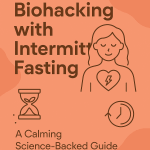In recent years, plant-based diets have surged in popularity, and with good reason. More and more people are discovering the vast benefits of fueling their bodies with plant-based protein.
Whether you’re looking to improve your health, reduce your environmental footprint, or make more ethical food choices, plant-based proteins offer a versatile and powerful alternative to animal-based sources. In this comprehensive guide, we’ll explore everything you need to know about plant-based protein, from its benefits to incorporating it into your diet.
Let’s dive in!
Benefits of Plant-Based Protein
First things first, why consider plant-based protein? There are numerous benefits associated with making the switch. Let’s break it down.
Health Benefits
Plant-based proteins are incredibly beneficial for your health. They are often lower in saturated fats and cholesterol compared to animal proteins, which can help reduce the risk of heart disease. Additionally, plant-based diets are linked to better weight management, lower blood pressure, and improved cholesterol levels. They’re also rich in essential vitamins, minerals, and fiber, all of which contribute to overall health and wellbeing.
Environmental Benefits
Choosing plant-based proteins is a powerful way to support a more sustainable food system. Animal agriculture is one of the leading contributors to greenhouse gas emissions, deforestation, and water consumption. By opting for plant-based proteins, you’re reducing your carbon footprint and contributing to a healthier planet. It’s a small change that can make a big impact!
Ethical Considerations
For many, the decision to switch to plant-based proteins is also driven by ethical reasons. Reducing or eliminating animal products from your diet can help reduce the demand for factory farming, which is often associated with poor animal welfare conditions. Choosing plant-based proteins aligns with a more compassionate and humane approach to eating.
Types of Plant-Based Protein Sources
Now that we’ve covered the “why,” let’s explore the “what.” There’s a vast array of plant-based protein sources to choose from, each with its own unique nutritional profile and culinary uses.
Legumes
Legumes are a powerhouse of plant-based protein. Lentils, chickpeas, black beans, and kidney beans are just a few examples. They’re not only rich in protein but also packed with fiber, iron, and other essential nutrients. Legumes can be used in a variety of dishes, from soups and stews to salads and dips. A hearty lentil soup or a chickpea salad can make for a satisfying, protein-rich meal.
Nuts and Seeds
Nuts and seeds are another excellent source of plant-based protein. Almonds, walnuts, chia seeds, and hemp seeds are all nutrient-dense options. They’re also high in healthy fats, which are beneficial for heart health. Sprinkle them on your oatmeal, blend them into smoothies, or enjoy them as a snack. Nut butter, like almond or peanut butter, are also a delicious way to boost your protein intake.
Grains
While grains are often thought of as a source of carbohydrates, many grains also provide a good amount of protein. Quinoa, for instance, is a complete protein, meaning it contains all nine essential amino acids. Other protein-rich grains include barley, farro, and oats. Incorporate these grains into your meals by using them as a base for salads, bowls, or side dishes.
Vegetables
Yes, even vegetables can be a great source of protein! Spinach, broccoli, peas, and Brussels sprouts are all surprisingly high in protein. These vegetables are also rich in vitamins, minerals, and antioxidants, making them an essential part of a balanced diet. Add them to your meals in various ways, whether steamed, roasted, or blended into smoothies.
Protein Powders
For those looking to boost their protein intake even further, plant-based protein powders can be a convenient option. Pea protein, hemp protein, and soy protein are popular choices. These powders can be easily added to smoothies, baked goods, or even used to make protein bars. Just make sure to choose high-quality powders without added sugars or artificial ingredients.
Incorporating Plant-Based Protein into Your Diet
So, how can you seamlessly incorporate more plant-based proteins into your diet? It’s easier than you might think, and the options are endless.
Meal Ideas and Recipes
Start your day with a protein-packed breakfast. Overnight oats with almond butter and chia seeds, a smoothie with pea protein powder, or a tofu scramble are all great choices. For lunch and dinner, think beyond the traditional salads and experiment with hearty grain bowls, bean-based stews, and stir-fries with a variety of vegetables and legumes. The key is to diversify your meals and explore new recipes.
Balancing Macronutrients
Ensuring a balanced intake of macronutrients (protein, carbohydrates, and fats) is crucial for overall health. When planning your meals, aim to include a source of plant-based protein, a healthy fat, and a complex carbohydrate. For instance, a quinoa and black bean salad with avocado and a side of roasted vegetables provide a well-rounded, nutritious meal. Don’t forget to incorporate various colors and textures to keep your meals interesting and satisfying.
Ensuring Complete Protein Intake
One common concern with plant-based diets is whether you’re getting all the essential amino acids. While some plant-based proteins are not complete on their own, combining different protein sources can ensure you get all the amino acids your body needs. For example, pairing rice with beans or hummus with whole-grain pita can create a complete protein. Diversifying your protein sources throughout the day can help you meet your nutritional needs.
Debunking Myths About Plant-Based Protein
Despite the growing popularity of plant-based diets, several myths persist. Let’s address and debunk some of the most common misconceptions:
Protein Deficiency
One of the most common myths is that plant-based diets lead to protein deficiency. However, a well-planned plant-based diet can provide all the protein your body needs. The myth persists largely due to the outdated notion that only animal proteins are “complete” proteins, meaning they contain all the essential amino acids in sufficient quantities. The truth is, that you can easily meet your protein requirements with a variety of plant-based foods. By including legumes, grains, nuts, seeds, and vegetables, you can ensure a diverse amino acid profile, keeping your protein intake balanced and adequate.
Muscle Building
Another misconception is that you need animal protein to build muscle. Numerous athletes and bodybuilders thrive on plant-based diets, proving that plant proteins can support muscle growth and recovery just as well as animal proteins. Studies show that with the right training and nutrition, plant-based proteins can effectively promote muscle protein synthesis. The key is to consume a variety of protein sources and ensure adequate caloric intake to support muscle-building efforts.
Limited Food Choices
Some people believe plant-based diets are restrictive and lack variety. On the contrary, they offer a wide array of foods and flavors. From savory lentil stews to sweet almond and berry smoothies, the possibilities are endless. The variety of plant-based protein sources allows for creativity and experimentation in the kitchen, ensuring meals remain exciting and nutritious.
Scientific Evidence Supporting Plant-Based Protein Benefits
Scientific research continues to support the benefits of plant-based proteins. Studies have shown that plant-based diets can lead to lower risks of heart disease, hypertension, diabetes, and certain cancers. For example, a study published in the “Journal of the American Heart Association” found that higher intake of plant-based proteins was associated with lower risks of death from cardiovascular disease. Another study in the “American Journal of Clinical Nutrition” highlighted that plant-based proteins are effective in supporting muscle health and overall physical performance, debunking the myth that they are inferior to animal proteins.
Conclusion
Incorporating plant-based protein into your diet is a powerful way to boost your health, support the environment, and align with ethical considerations. Remember, it’s not just about replacing animal products but embracing the variety and richness that plant-based foods offer. Start small by integrating a few plant-based meals into your week, and gradually explore new recipes and ingredients. With the right approach, plant-based proteins can fuel your body, nourish your soul, and contribute to a more sustainable future.
Encourage yourself to experiment with plant-based proteins and discover the vibrant flavors and health benefits they bring. Your body, the planet, and your taste buds will thank you.














